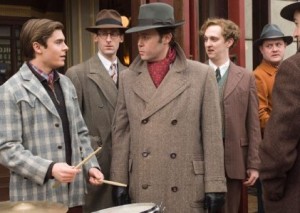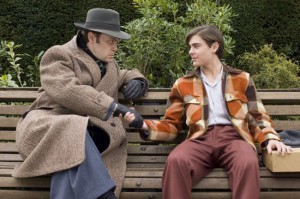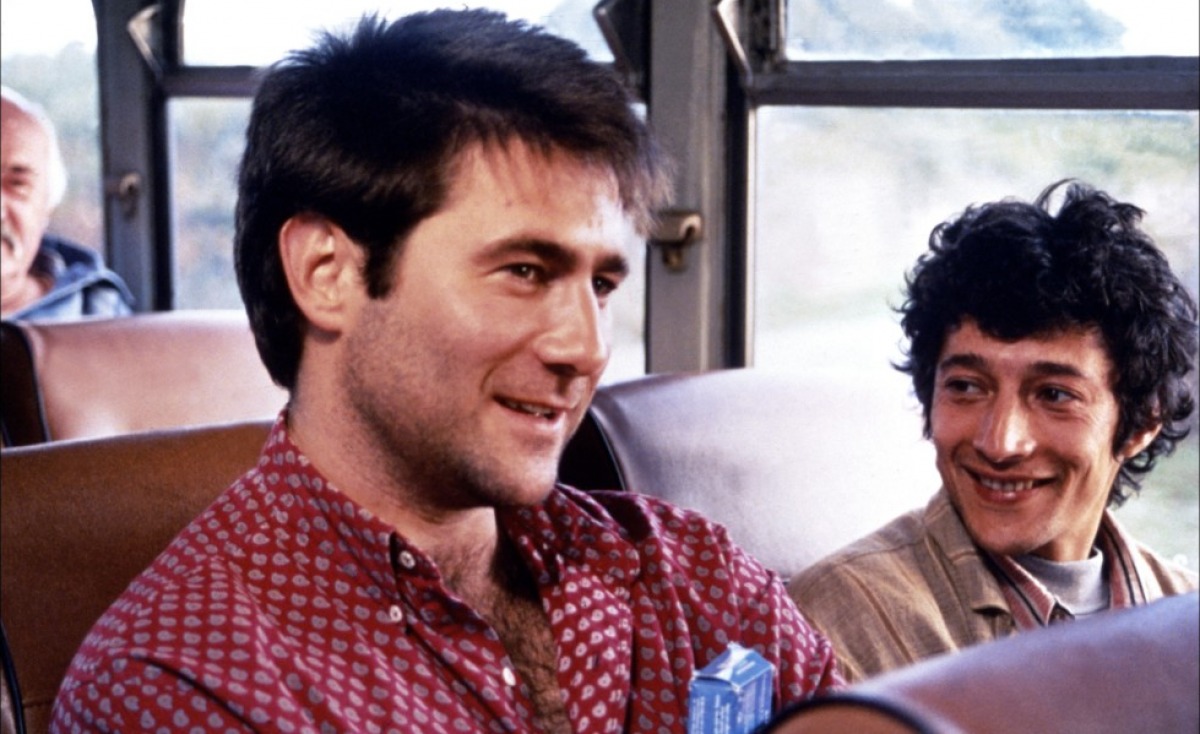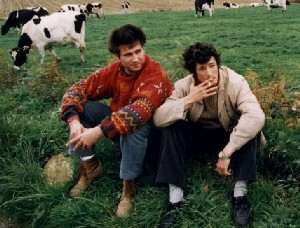Written for the FIPRESCI web site from the 33rd Toronto International Film Festival in September 2008. — J.R.


The continuing mythological status of Orson Welles in the realm of cinephilia complicates the challenge of representing Welles on film in many different ways. It’s one of the clearest merits of Richard Linklater’s Me and Orson Welles, which premiered at the Toronto International Film Festival, to have met and grappled responsibly with many if not all of the issues of this formidable challenge.
Working uncharacteristically with a script written by others — Holly Gent Palmo and Vince Palmo, adapting a novel by Robert Kaplow that I haven’t yet read — Linklater tells the story of a fictional high school teenager (played by Zac Efron, best known for his role as Link Larkin in the recent remake of Hairspray) in 1937 who by sheer chance lands a bit part as a lute player in Welles’s famous stage production of Shakespeare’s Julius Caesar, a highly edited modern-dress adaptation known as Caesar built around the conceit of the story taking place in contemporary fascist Italy, with a bare set illuminated by “Nuremburg” lighting. Linklater has obviously researched existing records of this production (which include photographs, a script published some years ago by Welles scholar Richard France, and at least two audio recordings of the play performed by essentially the same cast around the same time) in considerable detail.
Read more
From the November 17, 2000 Chicago Reader. — J.R.

When I spent a day in Brisbane four years ago, it struck me in terms of climate as well as social ambience as being the Mississippi or Louisiana of Australia. That’s only one of the reasons why this grim, passionate, and graphic love story about two highly dysfunctional young individuals — a chain-smoking asthmatic (Peter Fenton) and an irritable, promiscuous, and possibly crazy victim of eczema (Sacha Horler), both unemployed — reminds me of the tale about a doomed couple that forms half of William Faulkner’s The Wild Palms. Another reason is the uncanny way that Andrew McGahan, adapting his own best-selling novel, director John Curran, and cinematographer Dion Beebe have of making their story paradoxically superromantic by keeping it so doggedly antiromantic. With its honesty about sexual inadequacies (his rather than hers), drugs, squalor, and compulsive behavior, this obviously isn’t a film for everyone, but you can’t accuse it of toeing the Hollywood line, and parts of it remind me of Gus Van Sant’s first three movies, before he was swallowed whole by the studios. If you’re looking for something other than the usual cheering up, check this sick puppy out (1999, 98 min.). Read more
From the Chicago Reader (April 9, 1999). — J.R.

Western
Rating *** A must see
Directed and written by Manuel Poirier
With Sergi Lopez, Sacha Bourdo, Elisabeth Vitali, Marie Matheron, and Basile Sieouka.

The other day I received an E-mail from someone wanting to know how I could have described The Tree of Wooden Clogs as Marxist when it was so clearly a religious film. Actually Dave Kehr had written the capsule review of Ermanno Olmi’s feature 14 years ago, but I hastily E-mailed back that any Italian could tell you that Marxism can easily be seen as a form of religion. Afterward I realized that this response was flip. It would have been better to say that Catholicism and Marxism have had a long and complex coexistence in Italy, and that it was unrealistic to expect that they would be mutually exclusive as systems of belief; the career of Pier Paolo Pasolini is proof of how intimately the two can be intertwined, regardless of the contradictions involved. That led me to think about how the simple characterizations of European Marxism in this country foster such confusion. Shortly after this I happened to read Andre Bazin’s description of The Bicycle Thief as one of the great communist films — an aspect of the film I suspect couldn’t have been apparent to American audiences when it won the Oscar for best foreign film in 1949. Read more
A slightly edited version of the following essay was published to accompany a film series devoted to the favorite films of Frieda Grafe that was held in the spring of 2013 at the Arsenal in Berlin. I was also invited to Berlin to introduce the screening of Avanti! on April 28. (The next day, in response to my opening sentence, Volker Pantenburg was kind enough to email me a rough translation of Grafe’s brief remarks about Avanti! in her “Filmtips”: “AVANTI!, 1972. As in FEDORA, it is about a corpse, but here it’s more time-critical. The American Moloch is confronted with its European frontiers, the Mafia. And: the Indian summer of business men” [“business men” is written in English].). — J.R.

Prologue
As someone who can’t read German, I feel more than a little frustrated that I can’t read Frieda Grafe on the subject of Avanti! But I know that she selected the film in 1995 as one of her thirty favorites — a fascinating, eccentric line-up that contains only one silent picture (Frank Capra’s The Strong Man, 1926) and only one film of the 1980s (Jacques Rozier’s Maine-Océan, 1986), to cite the first and last items on her list. Read more






